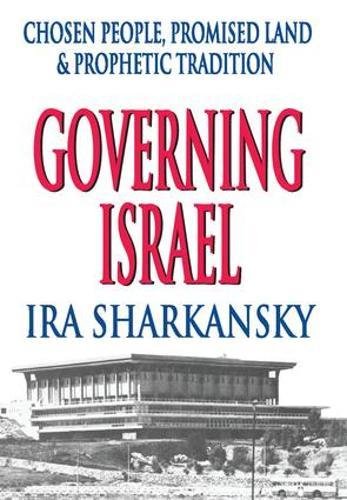

Most ebook files are in PDF format, so you can easily read them using various software such as Foxit Reader or directly on the Google Chrome browser.
Some ebook files are released by publishers in other formats such as .awz, .mobi, .epub, .fb2, etc. You may need to install specific software to read these formats on mobile/PC, such as Calibre.
Please read the tutorial at this link. https://ebooknice.com/page/post?id=faq
We offer FREE conversion to the popular formats you request; however, this may take some time. Therefore, right after payment, please email us, and we will try to provide the service as quickly as possible.
For some exceptional file formats or broken links (if any), please refrain from opening any disputes. Instead, email us first, and we will try to assist within a maximum of 6 hours.
EbookNice Team

Status:
Available4.5
24 reviewsIsraeli politics and policymaking reflect themes long imbedded in Jewish culture. The concepts of Chosen People and Promised Land, and their meaning in Christian as well as Jewish religious traditions, assure that Israel is perpetually in the international spotlight. They also impose a sense of distinctiveness on the Israeli population. Some Israelis trumpet their country's accomplishments with unrestrained superlatives. Social critics accuse Israel of having the worst of the world's conditions. In this they reflect another trait that seems to have been inherited from the ancients: the prophetic tradition of extreme self-criticism. In reality, much of what occurs in Israel is similar to what occurs in countries that share its characteristics: democracy, western culture, and an advanced level of economic development. Such an idea may seem bizarre alongside headlines about suicide bombings and the country's aggressive defensive posture. This misses what is normal about Israel. In Israel policymakers weigh benefits and costs of various options, and generally choose something moderate, just as they do elsewhere. But this reality does not dim the rhetoric of politics, where hyperbole frequently seems more evident than rational discourse. Sharkansky discusses three central issues in Israeli public affairs: religion, national security, and social policy. He describes how policymakers relate to these issue and themes. Major problems may not be solved, but they are managed in a way that is tolerable. It is in this trait that Israel resembles other western democracies. In sum, biblical themes affect Israel's political rhetoric more than they affect the way officials actually work out their problems. Pragmatic coping with worldly realities generally overcomes emotional expressions that convey ingredients of spirituality.